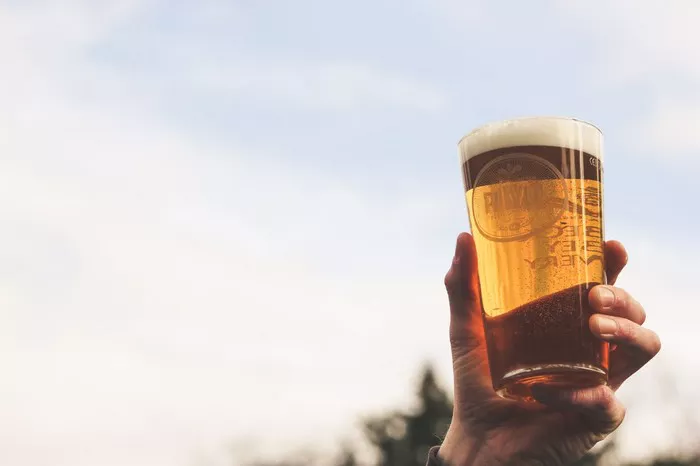As the prevalence of diabetes continues to rise globally, individuals diagnosed with this chronic condition are constantly advised to monitor their diet and lifestyle choices. Among the many factors that can impact blood sugar levels, the consumption of alcoholic beverages, particularly beer, has drawn attention. This article explores the intricate relationship between diabetes and beer, aiming to shed light on the question: Why is beer bad for diabetics?
1. Glycemic Impact of Beer on Diabetics
The glycemic index (GI) measures how quickly a particular food raises blood sugar levels. Beer, often touted as a staple in social gatherings, has a relatively high glycemic index. This means that the carbohydrates present in beer are rapidly converted into glucose, leading to a swift increase in blood sugar levels. For diabetics, this sudden spike poses a significant risk, as maintaining stable blood sugar levels is paramount to managing the condition. Understanding the glycemic impact of beer is crucial in comprehending why it is deemed unfavorable for individuals with diabetes.
2. Hidden Carbohydrates in Beer
While it’s widely recognized that carbohydrates affect blood sugar levels, the presence of hidden carbohydrates in beer may catch many individuals off guard. Beyond the obvious sugars, beer can contain additional carbohydrates derived from grains and other brewing ingredients. These hidden carbohydrates contribute to the overall carbohydrate load, making it challenging for diabetics to accurately gauge and manage their carbohydrate intake. Consequently, understanding the intricacies of the carbohydrate content in beer provides valuable insights into why it may be detrimental for those with diabetes.
3. Alcohol and Blood Sugar Swings in Diabetics
Apart from the carbohydrate content, the alcohol itself in beer can influence blood sugar levels in diabetics. Alcohol can lead to unpredictable fluctuations in blood sugar, making it difficult for individuals with diabetes to maintain stable control over their condition. Additionally, alcohol can impair the liver’s ability to regulate blood sugar, potentially resulting in hypoglycemia, a condition characterized by abnormally low blood sugar levels. Recognizing the impact of alcohol on blood sugar swings is essential in grasping why beer may pose risks for diabetics.
4. Beer and Insulin Sensitivity: A Complex Connection
Insulin sensitivity, the body’s ability to respond to insulin, is a critical factor in diabetes management. Emerging research suggests that chronic alcohol consumption, including regular beer consumption, may adversely affect insulin sensitivity. This intricate connection underscores the importance of considering how beer can impact insulin function in individuals with diabetes. Exploring the relationship between beer and insulin sensitivity provides deeper insights into the reasons behind the cautionary advice given to those managing diabetes.
See Also: how many calories in a bottle of malbec
5. Caloric Load and Weight Management in Diabetics
Diabetes management often involves weight control and maintaining a healthy body mass index (BMI). Beer, while a popular beverage, can contribute significantly to the caloric intake of an individual. Excessive caloric consumption, especially from alcoholic beverages, can lead to weight gain and obesity. Managing weight is crucial in diabetes care, and understanding the caloric load of beer is essential in comprehending why it may be considered detrimental for those striving to achieve or maintain a healthy weight.
6. Beer and its Impact on Heart Health for Diabetics
Individuals with diabetes are at a higher risk of cardiovascular complications. Beer consumption, particularly in excess, can contribute to heart-related issues. The alcohol and carbohydrates in beer may lead to elevated triglyceride levels and increased blood pressure, both of which can escalate the risk of heart disease in diabetics. Evaluating the impact of beer on heart health provides an additional layer of understanding as to why it may be advised against for individuals managing diabetes.
7. Dehydration and Electrolyte Imbalance: Lesser-Known Risks
Beer, like other alcoholic beverages, has diuretic properties, leading to increased urine production and potential dehydration. Dehydration can adversely affect individuals with diabetes, as it may lead to electrolyte imbalances and complications such as ketoacidosis. Recognizing the lesser-known risks of dehydration and electrolyte imbalance associated with beer consumption sheds light on why it is considered unfavorable for those with diabetes.
8. Alcohol’s Effect on Medication: A Consideration for Diabetics
Many individuals with diabetes rely on medication to manage their condition effectively. It is crucial to understand that alcohol, including beer, can interact with diabetes medications, potentially leading to adverse effects. These interactions may interfere with the medication’s efficacy, making it challenging for individuals to achieve optimal blood sugar control. Examining the impact of beer on diabetes medication highlights the importance of cautious and informed choices in managing the condition.
Conclusion: Navigating the Complex Relationship Between Beer and Diabetes
In conclusion, the question of why beer is bad for diabetics involves a multifaceted exploration of its impact on glycemic control, hidden carbohydrates, alcohol-induced blood sugar swings, insulin sensitivity, caloric load, heart health, dehydration risks, and medication interactions. While moderation may be key in some cases, individuals with diabetes must weigh the potential risks against the enjoyment derived from beer consumption. Ultimately, understanding the complexities of this relationship empowers individuals to make informed choices that align with their diabetes management goals.


